![]()
Wed, Aug 11, 2010 | The Meir Amit Intelligence and Terrorism Information Center
Iran Emphasizes The Role of Hezbollah and Hamas as the “Defense Lines” of the Islamic Revolution
Iran expressed support of the Lebanese government’s firm stance over the incident between the Lebanese army and the IDF on August 3. Iran emphasized the role of Hezbollah and Hamas as the “defense lines” of the Islamic revolution, avoiding rhetoric that may encourage Hezbollah to react and lead to escalation.
Overview
1. Iran was quick to respond to the incident on Israel’s northern border (August 3, 2010),[1] in which an IDF officer and four Lebanese (three soldiers and one civilian) were killed. As one would expect, the Iranians expressed support of the Lebanese government and the firm stance of the Lebanese people, condemned the so-called “Israeli aggression”, and portrayed Hezbollah and Hamas as the “defense lines” of the Islamic revolution and Iran.
2. However, the Iranian spokesmen chose not to make belligerent statements that may encourage Hezbollah to react, thereby escalating the situation on the ground. Our examination showed that the top Iranian officials avoided addressing the speech given by Hassan Nasrallah on the occasion of the fourth anniversary of the second Lebanon war, in which he threatened that his organization would chop off the Israeli hand raised against the Lebanese army”.
3. It is our assessment that Iran’s reaction is a reflection of its perception of Lebanon as an active theater of conflict against Israel and an important component of Iran’s national security strategy; it also reflects, however, its preference (as well as Hezbollah’s) not to escalate the situation at the present time.
Iran’s President Ahmadinejad
4. According to Iranian reports, President Ahmadinejad held separate telephone conversations with the president of Syria and the president of Lebanon, in which he stressed that the “enemy’s plots” to create trouble in the Middle East and particularly in Lebanon were doomed to failure and would be thwarted by building regional solidarity.[2] Ahmadinejad added that Israel believes it is capable of saving itself by “new adventures”, having found itself in a dead end. He emphasized once more that Iran would continue to support the people and government of Lebanon,[3] expressed condolences to the families of the Lebanese victims, and called to establish an international inquiry commission and condemn the “Israeli aggression against Lebanon”.[4]
5. The president of Iran also mentioned the incident during his August 4, 2010 speech in the city of Hamedan.[5] Speaking about the Palestinian issue and the peace process in the Middle East, Ahmadinejad called on Arab countries to exercise extreme caution. He noted that, for a long time, Israel has been struggling with an “identity crisis”, and that Arab countries must not show willingness for any concessions because of that. He said that Israel has no place among Middle Eastern countries: “Look how deceitful the Israelis are in the name of negotiations… They attacked Gaza several days ago… they attacked Lebanon… Aren’t they humiliating [the Arabs]?”
6. Addressing Arabs, he asked them “not to sell the Palestinian people to conquerors” and to make a firm stand, since “Israel is on the verge of destruction and isolation… legitimacy crisis… identity crisis… leadership crisis… it is being destroyed”. In a question addressed to Arab leaders, he asked them why they gave Israel rights.[6]
Other Iranian government officials
7. Iran’s Foreign Minister Manouchehr Mottaki criticized the UN saying that UN forces in southern Lebanon have to explain why they were unable to stop the “atrocities”. Mottaki added that, if that is how things are, the army of Lebanon and the groups of “resistance” (Hezbollah) would “have to make their own decisions”. He accused the Security Council of convening only when there is trouble for Israel, and that the fact that it convened immediately after the incident showed that “Israel is the real problem”.[7] Iran’s Foreign Ministry also released an official statement condemning the “Israeli attack” and warning about “new plots against the Lebanese people”.[8]
8. Iran’s Interior Minister Mostafa Mohammad Najjar (who formerly served as defense minister), said that the “new Israeli attack” showed that Israel was concerned about Hezbollah’s strength, further stating that he had great appreciation for the resilience of the Lebanese army.[9]
9. Ali Saidi, the Supreme Leader’s representative in the Revolutionary Guards, once again expressed Iran’s support of the Lebanese and Palestinian “resistance” (i.e., terrorist) organizations, and their major role in Iran’s national defense strategy. “Nowadays,” he said, “Lebanon, Palestine, and Iraq are the front lines in a [possible] attack against Iran”. He added that Iran’s support of Hamas is aimed to protect the first line of defense of the global Islamic revolution. In that context, he explained that Iran is a source of Islamic awakening across the globe, which is why it is targeted by the West and mainly the US, “hatred against which is on the rise”.[10]
Notes:
[1] See the August 10, 2010 post: “The Events of the LAF Attack On IDF Soldiers“.
[2] President.ir.
[3] English.farsnews.com.
[4] Isna.ir.
[5] An assassination attempt on Ahmadinejad was reported during his visit to the city. Iranian media later agreed that it was just an enthusiastic supporter who lit a firework to express happiness about the visit. See the August 04, 2010, post: “Ahmadinejad Survives Assassination Attempt“.
[6] President.ir.
[7] Irna.ir.
[8] English.farsnews.com.
[9] English.farsnews.com.
[10] English.farsnews.com.



 RSS
RSS

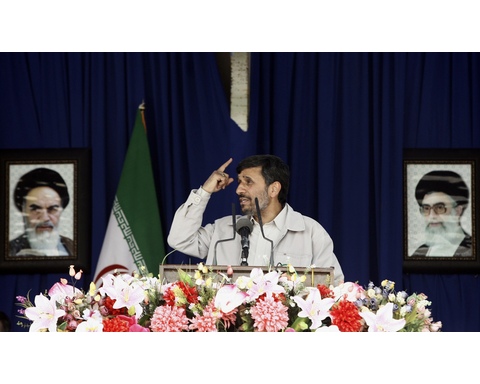

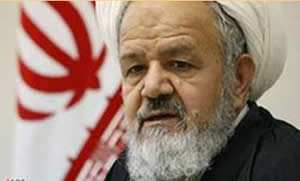
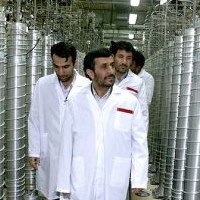
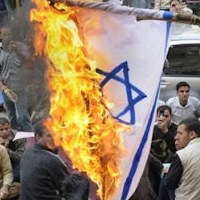
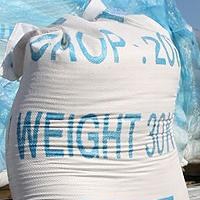
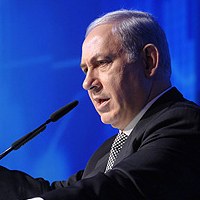
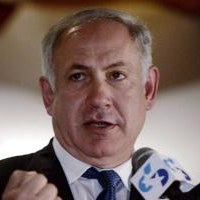




Iran Emphasizes The Role of Hezbollah and Hamas as the “Defense Lines” of the Islamic Revolution #iran #israel #lebanon http://j.mp/c3xAVi
RT @CrethiPlethi: Iran Emphasizes The Role of Hezbollah and Hamas as the “Defense Lines” of the Islamic Revolution #iran #israel #lebanon http://j.mp/c3xAVi